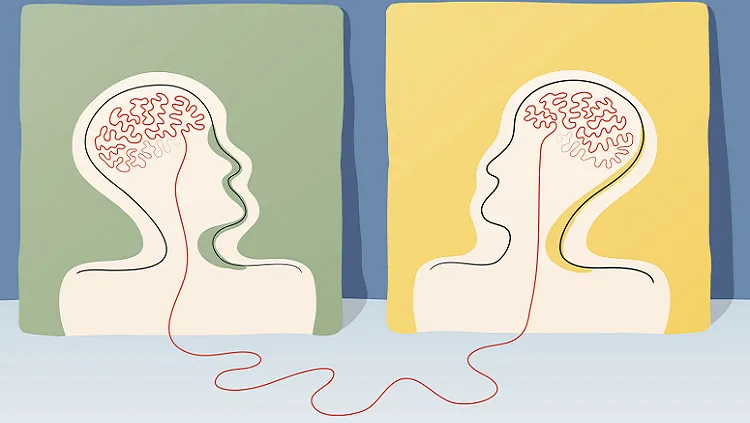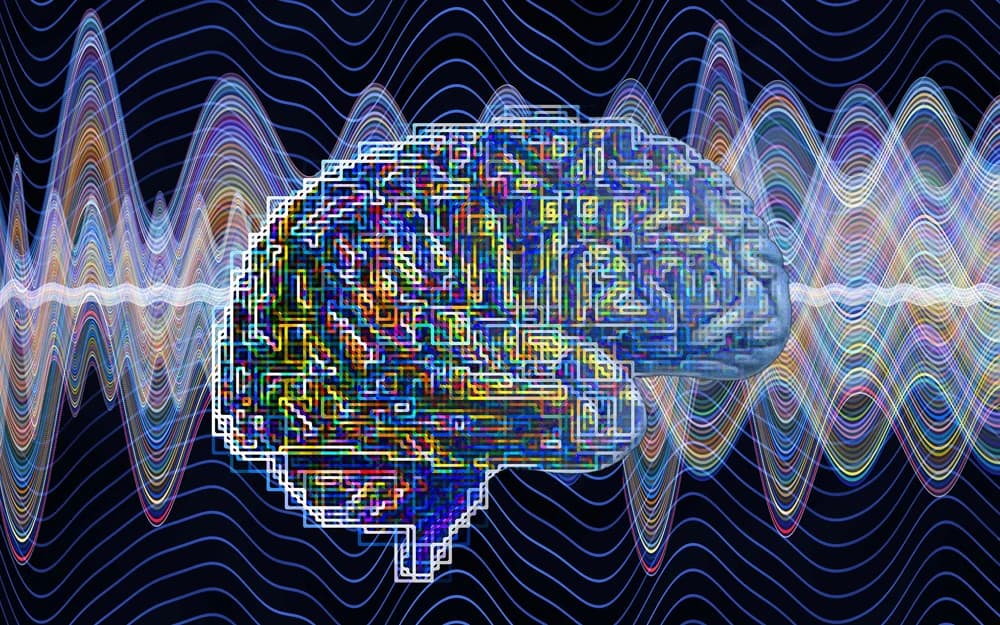Epilepsy is a chronic disease that causes repeated seizures due to abnormal electrical signals produced by damaged brain cells. Seizures are uncontrolled bursts of electrical activities that change sensations, behaviors, awareness, and muscle movements. Although there are no cures for epilepsy, up to 70% of patients can manage the disease with medications. Epilepsy is also called a seizure disorder. The two main types of seizures are generalized seizures & focal seizures.
What happens during seizures?
During a seizure, many neurons signal at the same time (up to 500 times/second) much faster than normal. Excessive electrical activity causes involuntary movements, sensations, emotions, and behaviors that temporarily disturb normal neuronal activity causing loss of awareness.
It may be difficult to recognize someone having a mild seizure, lasting only a few seconds, while stronger seizures cause spasms and uncontrollable muscle twitches. A seizure may last from a few seconds to several minutes and may cause confusion or loss of consciousness. Afterward, patients may have no memory of a seizure happening.

Signs and symptoms of Epilepsy
Epilepsy is a neurological disorder characterized by recurrent seizures or unusual sensations and behaviors. These seizures are uncontrolled bursts of electrical activities that change sensations, behaviors, awareness, and muscle movements. The symptoms of epilepsy can vary greatly between individuals and depend on the type of seizure.
Some of the common symptoms include temporary confusion, episodes of staring blankly, uncontrollable jerking movements or twitching of the arms and legs, loss of consciousness or awareness, and psychological symptoms such as fear and anxiety. Some people may also experience euphoria during the aura, which is a period just before the seizure episode.
The cause of epilepsy is often linked to abnormal activities in the brain, which can affect any area of the brain. This abnormal activity could result from genetic changes that run in families, trauma or injury to the head, medical conditions that affect the brain, such as a brain tumor or stroke, infectious diseases of the brain such as meningitis, damage or injury to the brain during birth, or developmental disorders of the brain such as autism.
If untreated for a prolonged period, epilepsy may lead to complications such as injuries or death due to falls, drowning during swimming, increased risk of accidents when driving a vehicle, complications during pregnancy, psychological problems such as depression, anxiety, and suicidal tendencies, frequent and recurrent seizures without regaining consciousness, a condition known as status epilepticus, and sudden unexpected death in epilepsy (SUDEP), a rare but life-threatening complication.
Is epilepsy a genetic disease?
In some cases, epilepsy can be caused by genetic abnormalities. But this does not mean a person born with the genetic predisposition for seizures will develop epilepsy or that it was passed on from one of their parents.
Risk of Epilepsy
Epilepsy is a chronic noncommunicable disease of the brain that affects people of all ages. It is one of the most common neurological diseases globally, affecting around 50 million people worldwide. However, certain factors may increase your risk of developing epilepsy.
Age: The onset of epilepsy is most common in children and older adults, but the condition can occur at any age.
Family history: If you have a family history of epilepsy, you may be at an increased risk of seizures.
Head injuries: Head injuries are responsible for some cases of epilepsy. Trauma or injury to the head can result in abnormal activities in the brain, leading to epilepsy.
Medical conditions: Certain medical conditions that affect the brain, such as brain tumors or strokes, can also increase the risk of epilepsy.
Infectious diseases: Infectious diseases of the brain such as meningitis can lead to epilepsy.
Birth complications: Damage or injury to the brain during birth can increase the risk of epilepsy.
Developmental disorders: Developmental disorders of the brain such as autism can also increase the risk of epilepsy.
It’s important to note that epilepsy can affect anyone, regardless of age, race, sex, or social class. Nearly 80% of people with epilepsy live in low- and middle-income countries. It is estimated that up to 70% of people living with epilepsy could live seizure-free if properly diagnosed and treated.
What causes epilepsy?
In most cases the cause of seizures is unknown, but the known causes of epilepsy include:
Genetics: Juvenile myoclonic epilepsy and childhood absence epilepsy, are more likely to be inherited. There are specific genes that are involved in these types of epilepsy, although other factors may be involved.
Mesial temporal sclerosis: This is a scar that forms in the inner part of your temporal lobe (part of your brain near your ear) that can give rise to focal seizures.
Head injuries: Head injuries can result from vehicular accidents, falls, or any blow to the head.
Brain infections: Infections can include brain abscess, meningitis, encephalitis, and neurocysticercosis.
Immune disorders: Conditions that cause your immune system to attack brain cells can lead to epilepsy.
Developmental disorders: Birth abnormalities affecting the brain are a frequent cause of epilepsy, particularly in people whose seizures aren’t controlled with anti-seizure medications.
Metabolic disorders: People with a metabolic condition (how your body obtains energy for normal functions) can have epilepsy.
Brain conditions and brain vessel abnormalities: Brain health issues that can cause epilepsy include brain tumors, strokes, dementia, and abnormal blood vessels, such as arteriovenous malformations.

What triggers an epileptic seizure?
Lack of sleep
Illness or fever
Stress
Bright lights, flashing lights, or patterns
Caffeine, alcohol or alcohol withdrawal, medications, or illegal drugs
Skipping meals, overeating, or specific food ingredients
Very low blood sugar
Head injury
Identifying triggers isn’t always easy. A single incident doesn’t always mean something is a trigger. Often, a combination of factors triggers a seizure.
What are the symptoms of epileptic seizures?
Although the main symptom of epilepsy is recurring seizures. Most patients have a variety of symptoms depending on the type of seizure they have, which include:
Temporary loss of awareness or consciousness.
Uncontrolled muscle movements, muscle jerking, loss of muscle tone.
Blank stare or “staring into space” look.
Temporary confusion, slowed thinking, problems with talking and understanding.
Changes in hearing, vision, taste, smell, feelings of numbness or tingling.
Problems talking or understanding.
Upset stomach, waves of heat or cold, goosebumps.
Lip-smacking, chewing motion, rubbing hands, finger motions.
Psychic symptoms, including fear, dread, anxiety, or déjà vu.
Faster heart rate and/or breathing.
Most people with epilepsy tend to have the same type of seizure, so have similar symptoms with each seizure.

How is epilepsy diagnosed?
Since a seizure may be the symptom of a serious medical issue, patients are advised to see a doctor as soon as possible if they suspect they’ve had a seizure. Based on your medical history and symptoms the doctor will likely give you a neurological examination to test your motor abilities and mental functioning. You’ll probably need to have a complete blood count (CBC) and the chemistry of your blood test to rule out other conditions causing seizures. Blood tests may be used to look for:
Signs of infectious diseases
Liver and kidney function
Blood glucose levels
Electroencephalogram (EEG) is the most common test used to diagnose epilepsy. During this test electrodes are placed on the scalp to search for abnormal patterns in the brain’s electrical activity. In some cases, patients are asked to perform a specific task during the test, while some must be asleep. Imaging tests can reveal tumors and other abnormalities that can cause seizures, which include:
CT scan
MRI
positron emission tomography (PET)
single-photon emission computerized tomography

How is epilepsy treated?
Although there is no cure for epilepsy, treatment can help you have fewer seizures or stop your seizures completely. The treatment plan for epilepsy will be based on the severity of your symptoms, your health, and how well you respond to therapy. Some treatment options for epilepsy include:
Anti-epileptic drugs: These can help reduce the number of seizures you have. While in some, they may eliminate seizures.
Vagus nerve stimulator: A device that is surgically placed under the skin on your chest and electrically stimulates the nerve that runs through your neck to prevent seizures.
Brain surgery: In some cases, your doctor may determine the area of the brain that is causing seizures to be removed or altered to treat your condition.
Doctors are searching for new treatments for epilepsy, and a treatment that may be available in the future is deep brain stimulation. It involves the implantation of electrodes into your brain and a generator into your chest which sends electrical impulses to your brain to help decrease seizures.
Conclusion
In conclusion, epilepsy is a widespread neurological disorder that affects millions of people worldwide, across all age groups. Characterized by recurrent seizures, it can significantly impact an individual’s quality of life. While certain factors such as age, family history, head injuries, and certain medical conditions can increase the risk of developing epilepsy, it’s important to note that epilepsy can affect anyone. Despite its challenges, with early diagnosis and appropriate treatment, many people with epilepsy can manage their symptoms effectively and lead normal, fulfilling lives. Continued research and advancements in medical technology hold the promise of improved treatments and a better understanding of this complex condition in the future.